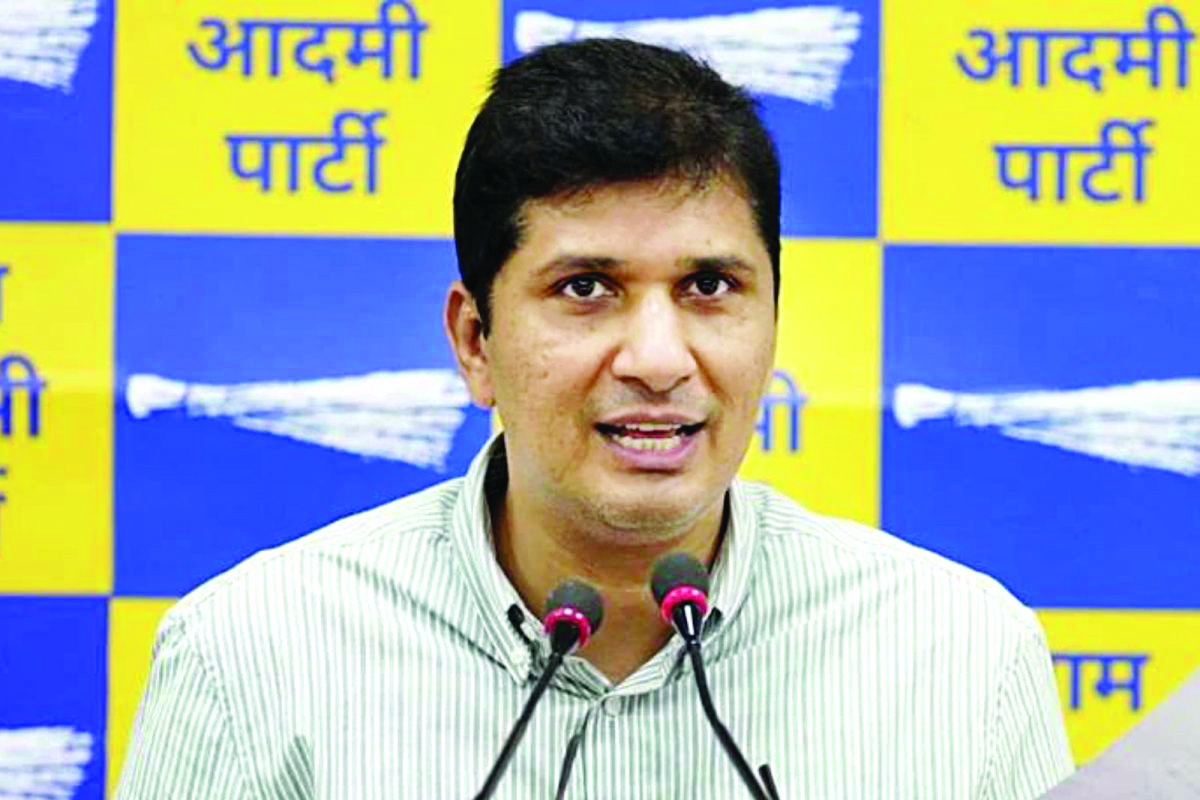Govt’s mega plan to curb vector-borne diseases

New Delhi: The Delhi government has come up with a “mega action plan” to combat the spread of vector-borne diseases, under which steps will be taken to determine the serotype of the prevailing dengue virus in the city.
Delhi Health minister Saurabh Bharadwaj on Sunday chaired a high-level meeting on preparedness for keeping vector-borne diseases under check in the national Capital.
One of the significant decisions taken in the meeting was to “determine the serotype of the prevailing dengue virus” in identified laboratories, the Delhi health department said in a statement.
“This step will provide crucial information for developing targeted interventions and enhancing the effectiveness of disease management efforts,” it said.
According to data shared by civic authorities, 136 cases of dengue and 43 of malaria have been recorded in Delhi this year till July 8.
The existing helpline — 1031 — used during the COVID-19 pandemic will now be utilised to facilitate dengue treatment. This expansion of services will ensure comprehensive support to individuals requiring medical assistance, the department said.
The commissioner of the Municipal Corporation of Delhi has been directed to “deploy drones” for mosquito surveillance and control, particularly in vulnerable areas such as construction sites, nurseries, and abandoned houses with inaccessible terraces.
This innovative approach will help identify breeding sites and implement targeted interventions to prevent disease transmission, officials said.
Recognising the importance of awareness among children, “dengue homework cards” will be provided to students in both government and private schools. These cards will be reviewed by class teachers on a weekly basis to reinforce knowledge about dengue prevention and promote responsible actions, they said.
“As an additional precautionary measure, schools will be directed to allow students to wear full-sleeve school dress or full-sleeve clothing until November. This step will provide added protection against mosquito bites and minimise the risk of disease transmission,” the statement said.
The meeting involved key stakeholders from various departments and agencies, including the MCD, NDMC, DMRC, health department, Delhi Cantonment Board, CPWD, irrigation and flood control department, DJB, and vector-borne disease officers of all districts.
After detailed discussions and deliberations, the health minister approved several decisions to strengthen preventive measures and control the spread of these diseases, it said.
Recognising the importance of public awareness, representatives from the Delhi Metro Rail Corporation (DMRC) were directed to play precautionary messages provided by the Directorate General of Health Services (DGHS) at metro stations, and inside metro trains. This will enable a widespread dissemination of preventive measures against dengue, reaching a large number of commuters.
To ensure effective monitoring and supervision of domestic breeding checking (DBC) staff, and their supervisors, a roster will be prepared. This roster will consist of officers, including assistant and commissioners, executive or superintending or chief engineers, who will oversee the work carried out by DBC staff and ensure their compliance with breeding control measures, the officials said.
To verify the completion of household visits by DBC staff, chief district medical officers (CDMOs) will conduct random checks. They will also be responsible for uploading pictures of visited households in a designated group created by the DGHS. This step aims to enhance accountability and transparency in the implementation of mosquito control measures.



